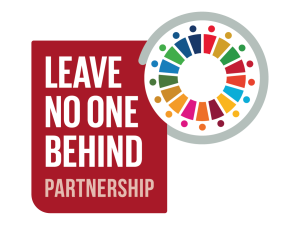The Leave No One Behind coalition in Vietnam was founded in 2018. From 2018-2020, country lead organisation was ActionAid Vietnam. The current lead organisation is the Management and Sustainable Development Institute (MSD). The VUFO NGO Resource Centre acts as strategic support of the coalition.
Current members (June 2024) are:
- ActionAid Vietnam
- ADRA Vietnam
- CBM Vietnam
- ChildFund Australia in Vietnam
- Federation of Canadian Municipalities – FCM
- Helvetas in Vietnam
- Human Rights Space – HRS
- IDEA
- Management and Sustainable Development Institute – MSD (Lead)
- Plan International in Vietnam
- Save the Children International in Vietnam – SCI
- Towards Transparency
- VUFO – NGO Resource Centre
- World Vision International Vietnam
- WWF Vietnam
The country coalition has delivered a project pilot, focussing on people living in poverty; ethnic minorities; people with disabilities; elderly people; young people. Target SDG was SDG 10.2.
The scaled up project aimed to increase citizen participation in the monitoring of the Sustainable Development Goals (SDGs) in Vietnam. Initially, SDG data relied solely on official sources managed by the national statistical office. However, recognising the importance of citizen engagement, the project empowered local civil society organisations (CSOs) to contribute to SDG monitoring through data generation.
The project had three main objectives:
- To increase the capacity of local organisations to generate SDG data.
- Fostering dialogue between CSOs, government and the private sector to amplify marginalised voices in SDG implementation.
- Advocating for the inclusion of citizen-generated data in government SDG reporting.
To achieve these goals, the project conducted focus group interviews with marginalised communities, worked with relevant ministries to strengthen community-government linkages, and participated in national and international forums to share findings. In addition, online trainings and a national dialogue empowered local civil society organisations and partnership members in SDG monitoring.
With the past project, the Vietnam Coalition has achieved significant milestones:
– Presenting CSO statements at the Vietnam Development Forum.
– Conducting UNDP-sponsored training workshops on advocating for an enabling environment for CSOs.
– Contributing to Vietnam’s Voluntary National Reviews (VNRs).
– Incorporating nearly 80% of the recommendations from ongoing community-generated data research into the 2020 National SDG Implementation Report.
– Completing the Vietnam SDG 16 Plus Report with cases provided by coalition members.
– Initiating discussions with national authorities to establish a framework for the production and use of citizen-generated data (CGD).
– Conducting a comprehensive survey of 3,100 people from different vulnerable groups across Vietnam, resulting in the report Citizen-generated data – Community voices on Achievement of Sustainable Development Goals in Vietnam.
– Organising a webinar to present the report’s findings and recommendations to government officials, UN representatives, civil society organisations and marginalised groups. A report film and talk show further disseminated the findings to over 3,000 people.
– Ensure sustainability through strengthened partnerships, collaboration with government agencies and plans to develop a national CGD manual/toolkit.
Future directions include strengthening CGD capacity, building partnerships for data collection, and addressing challenges related to survey coverage and outreach to ensure broader representation and impact. These efforts aim to further promote inclusive development and contribute to the achievement of the SDGs in Vietnam.





 Our Target SDGS in Vietnam
Our Target SDGS in Vietnam





